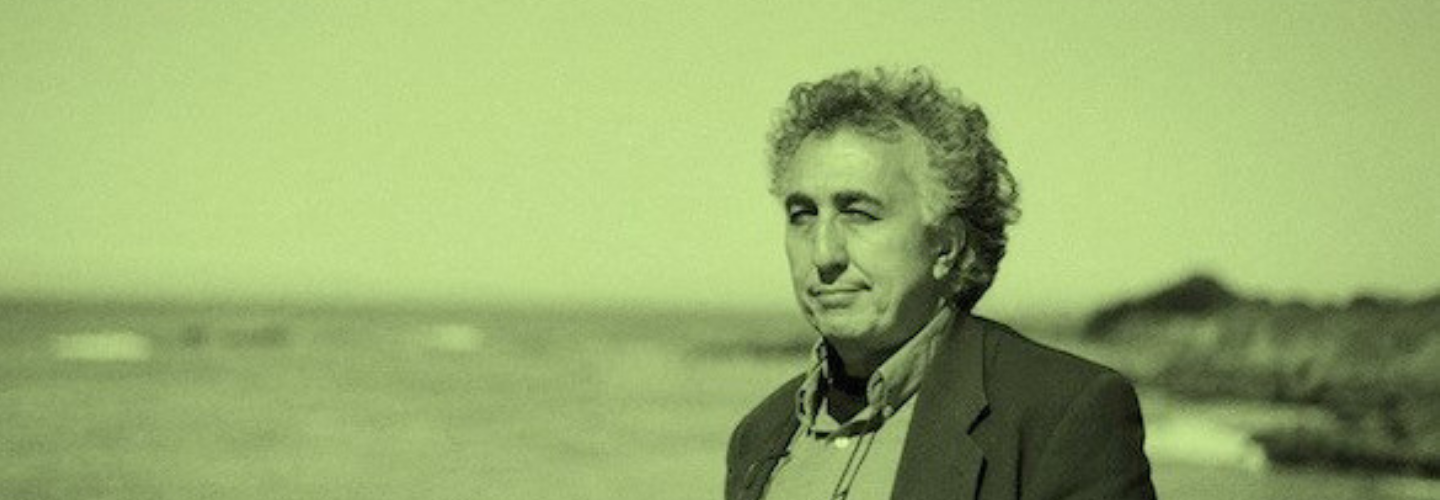Event Details
Date & Time:
Thu April 10, 2014 - Fri April 18, 2014
Audience:
Open to the public
Details:
A foundational figure of the “New Arab Cinema” movement that began in the 1970s, Moumen Smihi (born in Tangier, Morocco in 1945) is one of the most important Arab filmmakers working today, whose exceptional films are as fearless in their politics as they are quietly radical in form. With recent screenings at Cannes, Marrakech, and other international festivals and cinematheques, his films are finally receiving wider recognition.
Featuring seven films (most of them in newly struck 35mm prints) that span the last 40 years, this retrospective series offers audiences an opportunity to learn from an incisive figure in Middle Eastern cinema whose work gives further context and background to the ongoing political and cultural changes in the region.
Moumen Smihi will be present for the programs on April 10 and 11.
Co-presented with MENA (Middle East & North African Studies Program), the Buffett Center for International and Comparative Studies (BCICS), the Alice Kaplan Institute for the Humanities, the Harris Lecture Fund, and the Center for Global Culture and Communication (CGCC). This program was curated by Peter Limbrick, Associate Professor of Film and Digital Media at UC Santa Cruz, and organized by Livia Alexander, Montclair State University. Special Thanks to Moumen Smihi; Brian Edwards, MENA; Dilip Gaonkar, CGCC; Brian Hanson, BCICS; Wendy Wall, Kaplan Institute; Hamid Naficy; Peter Limbrick; and Livia Alexander.
The East Wind + The Unlucky Man
Thursday, April 10, 2014 7:00 PM FREE
The East Wind (El Chergui)
(Moumen Smihi, 1975, Morocco, 35mm, 80 min.)
Set in the mid-1950s when Tangier was still an international zone, El Chergui presents the city on the eve of its independence, as Aïcha resorts to magical practices to try to prevent her husband from taking a second wife. Around her, a society of women creates its own form of active resistance even as the larger independence movement grows around it. Through his unique use of montage, Smihi creates arresting images that present a society torn by the contradictions of colonialism, religion, patriarchy, and resistance.
Preceded by:
The Unlucky Man (Si Moh, pas de chance)
(Moumen Smihi, 1971, Morocco, video, 17 min.)
Shot in Paris after Smihi completed film school, Si Moh is an investigation of the life of migrant workers in France.
In person: Moumen Smihi
44, or Tales of the Night
Friday, April 11, 2014 7:00 PM
(Moumen Smihi, 1981, Morocco, 35mm, 110 min.)
Shot in exceptionally beautiful widescreen images by Pierre Lhomme, 44 presents a fresco of Morocco’s 44 years of colonization under France. With a mise-en-scène that owes much to Visconti’s The Leopard, 44 tries to capture the privilege of a religious family from Fez and the struggles of an impoverished family in Chaouen, within a society fighting for its independence. Smihi draws equally on the traditions of the Arabian Nights tales and the picaresque narratives of James Joyce in order to present multiple points of view on a complex national history.
In person: Moumen Smihi
DOUBLE FEATURE: Moroccan Chronicles & A Muslim Childhood
Thursday, April 17, 2014 7:00 PM FREE
Moroccan Chronicles
(Moumen Smihi, 1999, Morocco, 35mm, 70 min.)
In Moroccan Chronicles, set in the ancient city of Fez, a working class mother, abandoned by her husband who has emigrated to Europe, tells three tales to her just-circumcised ten-year-old son. In the first, Smihi re-stages the Marrakech market scene from Hitchcock’s The Man Who Knew Too Much, in which a monkey trainer makes children dance for tourists. In the second, two lovers meet on the ramparts of Orson Welles’s Essaouira locations for Othello and speak of their own forbidden love. And in the third, set in Smihi’s home town of Tangier, an old sailor dreams of vanquishing a sea monster: the Gibraltar ferry that connects Europe to Africa.
Followed by:
A Muslim Childhood
(Moumen Smihi, 2005, Morocco, 35mm, 83 min.)
This first film in a semi-autobiographical trilogy follows the everyday experiences of a timid pre-teen boy, Larbi Salmi, who struggles to make sense of his religious homelife, the secular education of his French school, and his budding desires for the forbidden pleasures of the cinema. All the while the film offers a tapestry of 1950s Tangier—an international zone marked by the influence of Arab, Berber, European, and American histories.
DOUBLE FEATURE: Girls and Swallows & Tanjawi: The Sorrows of a Young Tangerian
Friday, April 18, 2014 7:00 PM FREE
Girls and Swallows
(Moumen Smihi, 2008, Morocco, 35mm, 80 min.)
The second in the trilogy of stories devoted to the young Tangerian, Larbi Salmi, Girls and Swallows focuses on his passion for American and French pop culture, his own polymorphous nascent sexuality, and the different world views offered by his religious and secular educations. Told through a succession of stories from the medina and of Tangier, the film reflects on larger questions about the relationship of the sacred and sacrilegious, religion and politics, gender roles, sexuality, and freedom of thought within Arab-Islamic societies.
Followed by:
Tanjawi: Sorrows of a Young Tangerian
(Moumen Smihi, 2012, Morocco, 35mm, 95 min.)
Continuing the tales of Larbi Salmi, Tanjawi is set in the 1960s during the early years of Moroccan independence. Salmi, now in high school, is both full of revolutionary romanticism and also influenced by western culture. He declares his atheism to his religious father, and falls for his teacher, a beautiful young Parisian. When he joins the student political movement, only a miracle saves him from the repressive crackdown that his friends must suffer. Shot in startling long takes, the film is Smihi's boldest statement yet on religion and political histories in Morocco.
Contact The Block Museum of Art for more information: (847) 491-4000 or email us at block-museum@northwestern.edu
